Top Sewing Thread Options: Quality Spools for Every Project
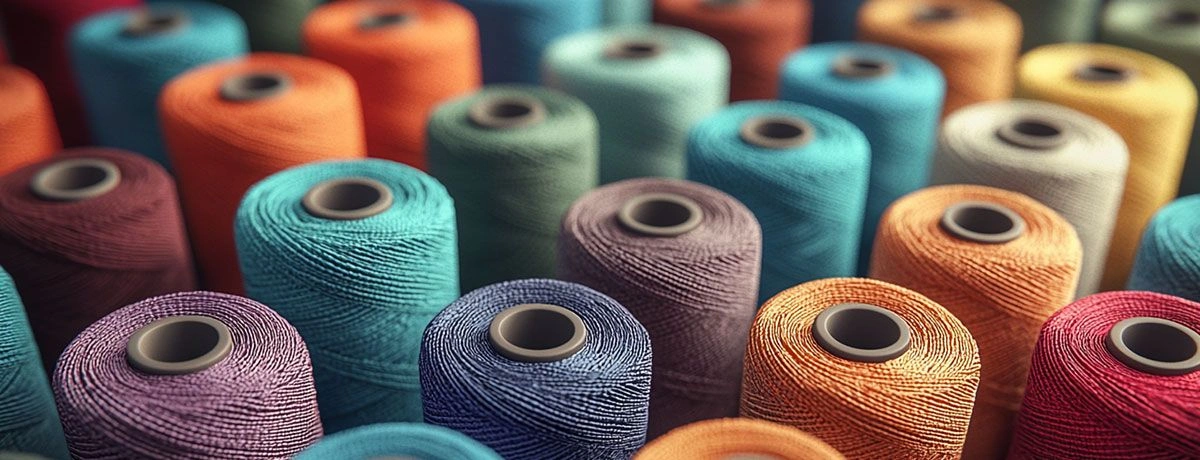
Choosing the right sewing thread ensures your sewing projects look professional and last longer. This article will explain the different types of threads, their uses, and how to select the best one for your fabric. You’ll also find tips on thread weight and specialty threads.
Key Takeaways
-
Sewing threads vary in type and material—cotton, polyester, and nylon—each suited for specific fabrics and applications.
-
Selecting the appropriate thread weight is essential, ranging from fine threads for delicate fabrics to heavy threads for robust applications.
-
Proper storage and maintenance of threads, including using thread wax and organizing spools, are crucial for preserving thread quality and ensuring successful sewing projects.
Understanding Sewing Threads
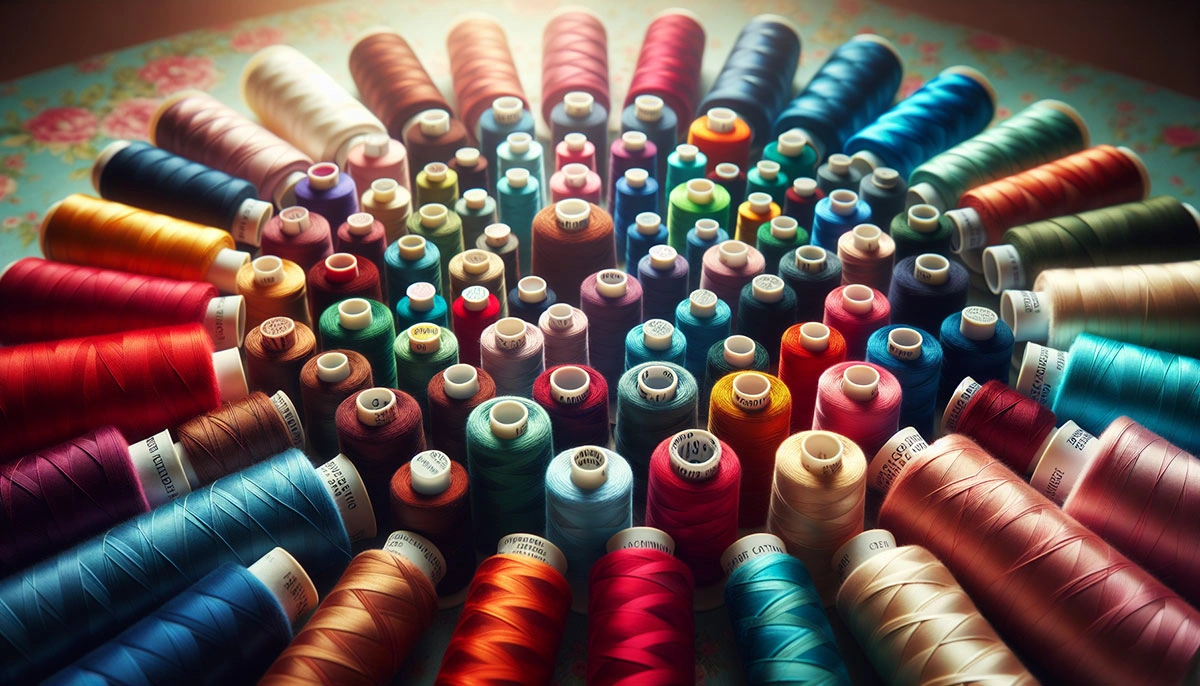
Sewing threads come in various types, each designed to meet specific needs and fabric types. Understanding these differences ensures the best results in your sewing projects. The primary types of threads you’ll encounter are cotton, polyester, and nylon, each with unique characteristics and applications.
Matching the thread material to your fabric is important. Consider the look, feel, durability, and stretch of both the thread and the fabric. For instance, using a cotton thread on synthetic fabric can cause seams to pucker due to different shrinkage rates.
Exploring each type in more detail will help you make informed choices.
Cotton Thread
Cotton thread, made from natural fibers, is a staple in the world of sewing. It’s particularly favored for patchwork and quilting because of its compatibility with 100% cotton fabrics. Cotton thread provides a smooth finish, making it an excellent choice for quilting projects.
When using cotton thread, match it with similar fabrics like cotton and linen to avoid issues like puckering. This is because cotton thread and fabric share similar shrinkage rates, ensuring your seams remain intact and smooth.
However, using cotton thread on synthetic materials can cause seams to pucker due to differing shrinkage rates. Considering the fabric type helps ensure your projects turn out as planned.
Polyester Thread
Polyester thread is renowned for its durability and versatility, making it a common choice for everyday sewing projects. Made from 100% polyester, this thread boasts excellent colorfastness, ensuring that colors do not fade even after multiple washes.
This thread is ideal for a variety of applications, including apparel, drapery, and slipcovers. Dura Spun polyester thread, for instance, is used for lightweight sewing, upholstery, and even mattresses and pillows. Its low-lint characteristic helps maintain a clean sewing environment, which is a bonus for those who sew frequently.
Premo Bond polyester thread, with its good UV and chemical resistance, is suitable for heavy-duty applications like outdoor products such as tarps and luggage. Polyester thread’s strength and durability make it a versatile choice for many sewing tasks without the worry of shrinking or fading.
Nylon Thread
Nylon thread stands out for its strength and elasticity, making it particularly effective for heavy-duty applications such as upholstery. This thread is designed to withstand significant stress and strain, making it ideal for projects that require a durable and flexible thread.
Nylon thread is also a popular choice for making outdoor gear and upholstery because of its ability to endure harsh conditions. Its high strength and elasticity ensure that it can handle the rigors of heavy use, making it a reliable choice for demanding applications.
From tents to backpacks, nylon thread’s resilience makes it a go-to option for projects that demand both durability and flexibility. Its versatility and strength make it a staple in any sewist’s thread collection.
Choosing the Right Thread Weight
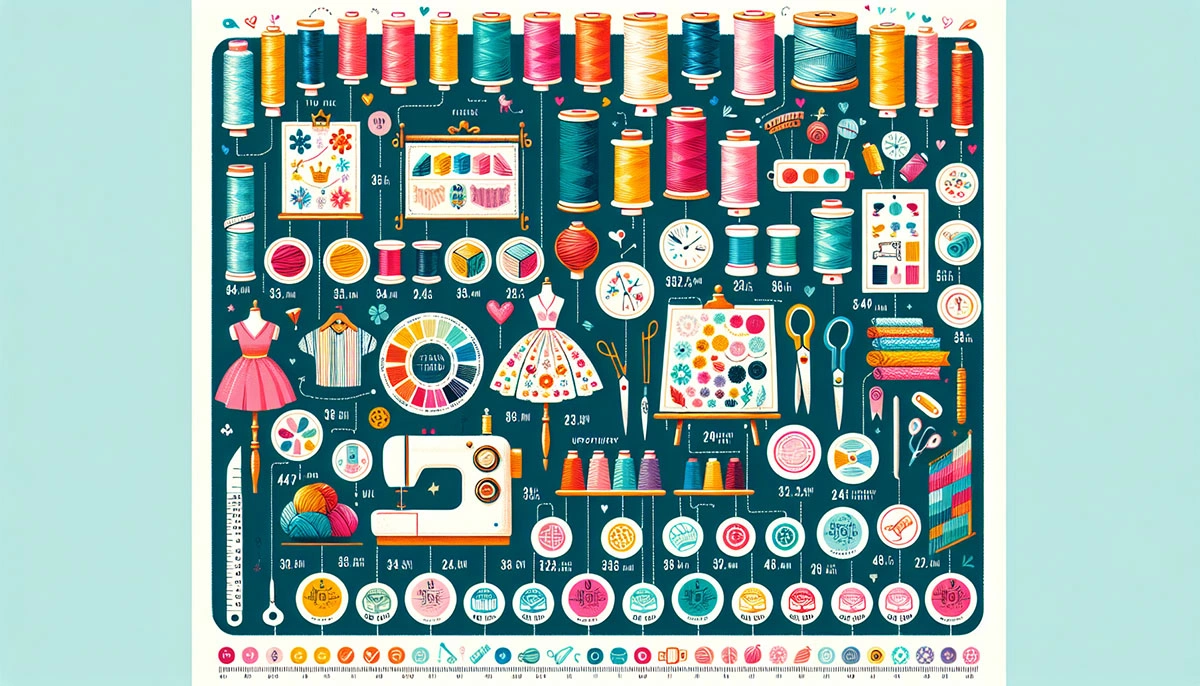
Selecting the right thread weight achieves the desired look and strength in your sewing projects. Thread weight, typically indicated by a number, influences the thread’s thickness and suitability for different tasks and fabrics.
Fine threads, ranging from weights 50 to 100, are perfect for delicate fabrics and narrow hems. These threads are less visible and provide a neat finish on lightweight materials. Medium threads, with weights between 30 and 50, offer versatility for everyday sewing, quilting, and topstitching.
For more robust applications, heavy threads from weights 12 to 30 are ideal for upholstery, leatherwork, and decorative stitching. Extra-heavy threads, weighing 8 and below, are reserved for tough outdoor materials and industrial applications. These weight categories guide you in choosing the right thread for your specific project needs.
Best Threads for Domestic Sewing Machines
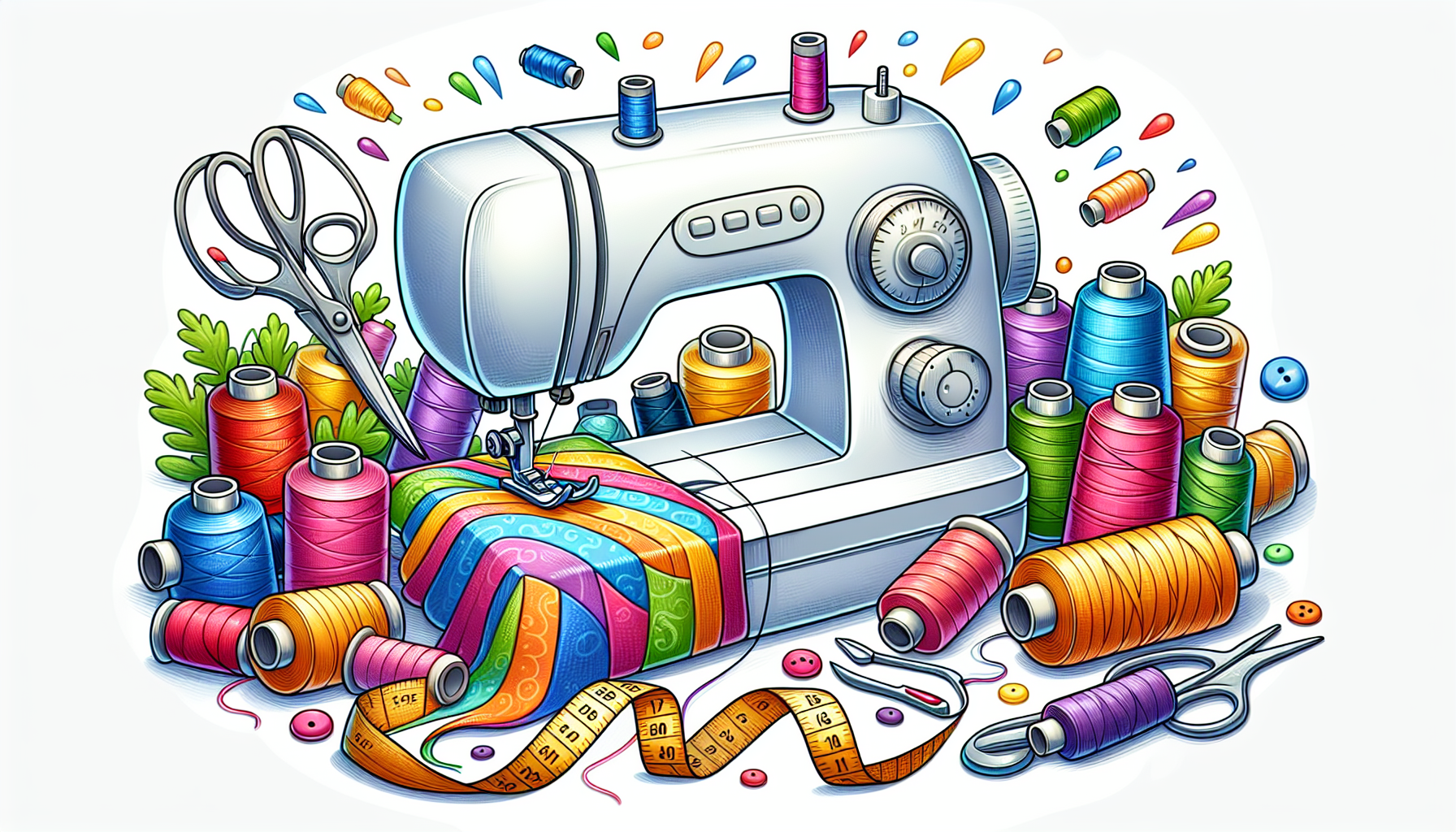
General-purpose sewing machine thread made from 100% polyester is a top choice for domestic sewing machines due to its strength and durability. This type of thread can handle a variety of sewing tasks, making it a versatile option for home sewing machine sewists.
The maximum recommended thread weight for home sewing machines is Tex 70. Exceeding this limit can cause issues with thread tension and machine performance. If you’re unsure about the compatibility of a specific thread with your sewing machine, it’s always a good idea to consult your machine’s manual or contact the manufacturer for guidance.
Fil-Tec thread is widely regarded as an excellent option. It is recognized for its high quality and reliability. The right thread for your domestic sewing machine ensures smooth sewing and professional-looking results.
Specialty Sewing Threads
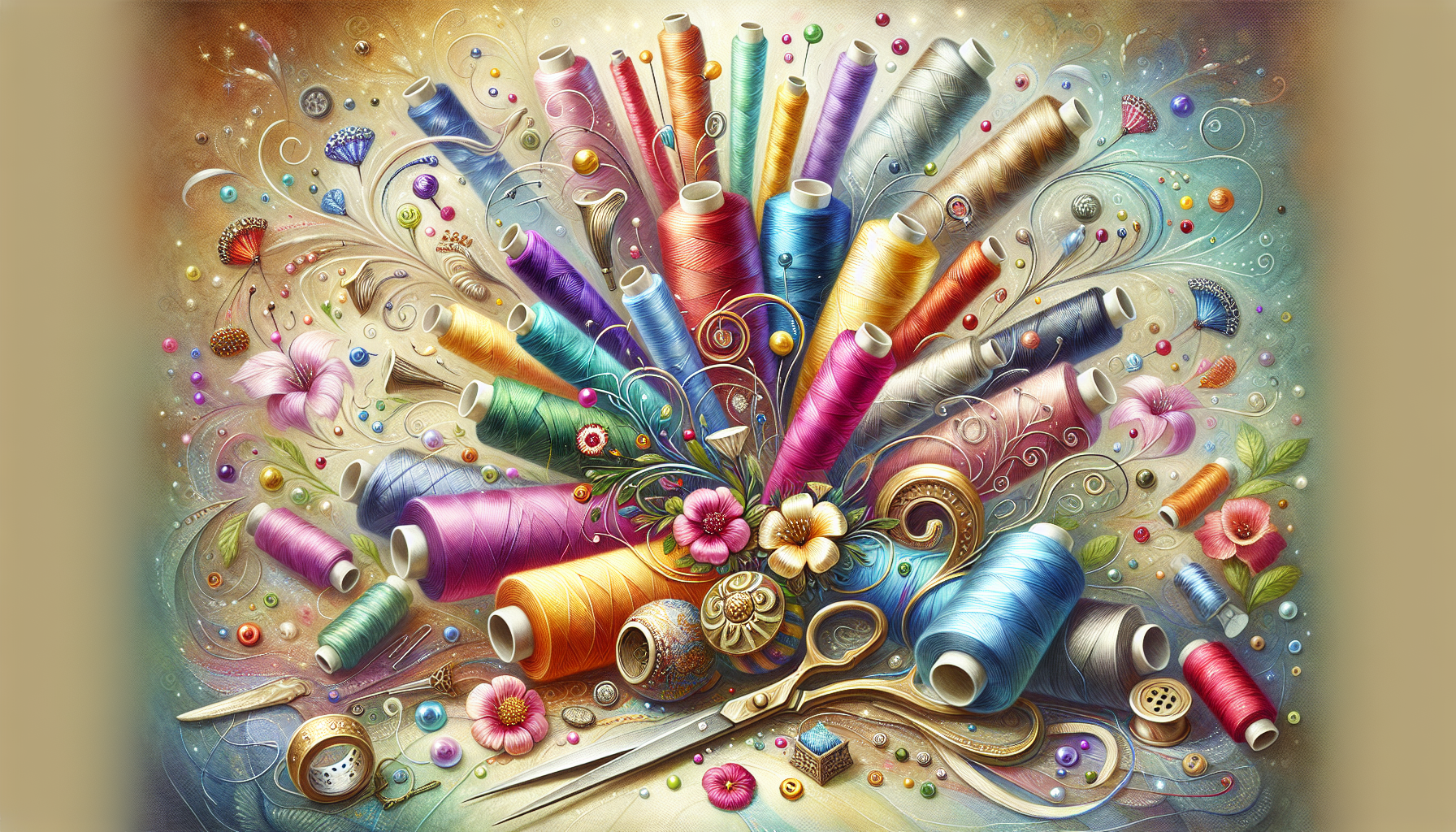
Specialty sewing threads enhance your projects with both functionality and aesthetic appeal. Metallic thread, for example, features a shiny finish that enhances the visual appeal of sewing projects and is commonly used for decorative purposes.
Silk thread is prized for its luxurious feel and strength, making it ideal for delicate projects and high-quality finishes. Wooly nylon thread, known for its stretchiness and softness, is perfect for serging and decorative stitching techniques.
Polyester thread is also favored for machine embroidery due to its durability and shiny finish, making it suitable for decorative stitching. These specialty threads offer unique applications in craft projects and can elevate the overall look of your creations.
Bulk Buying and Storage Tips
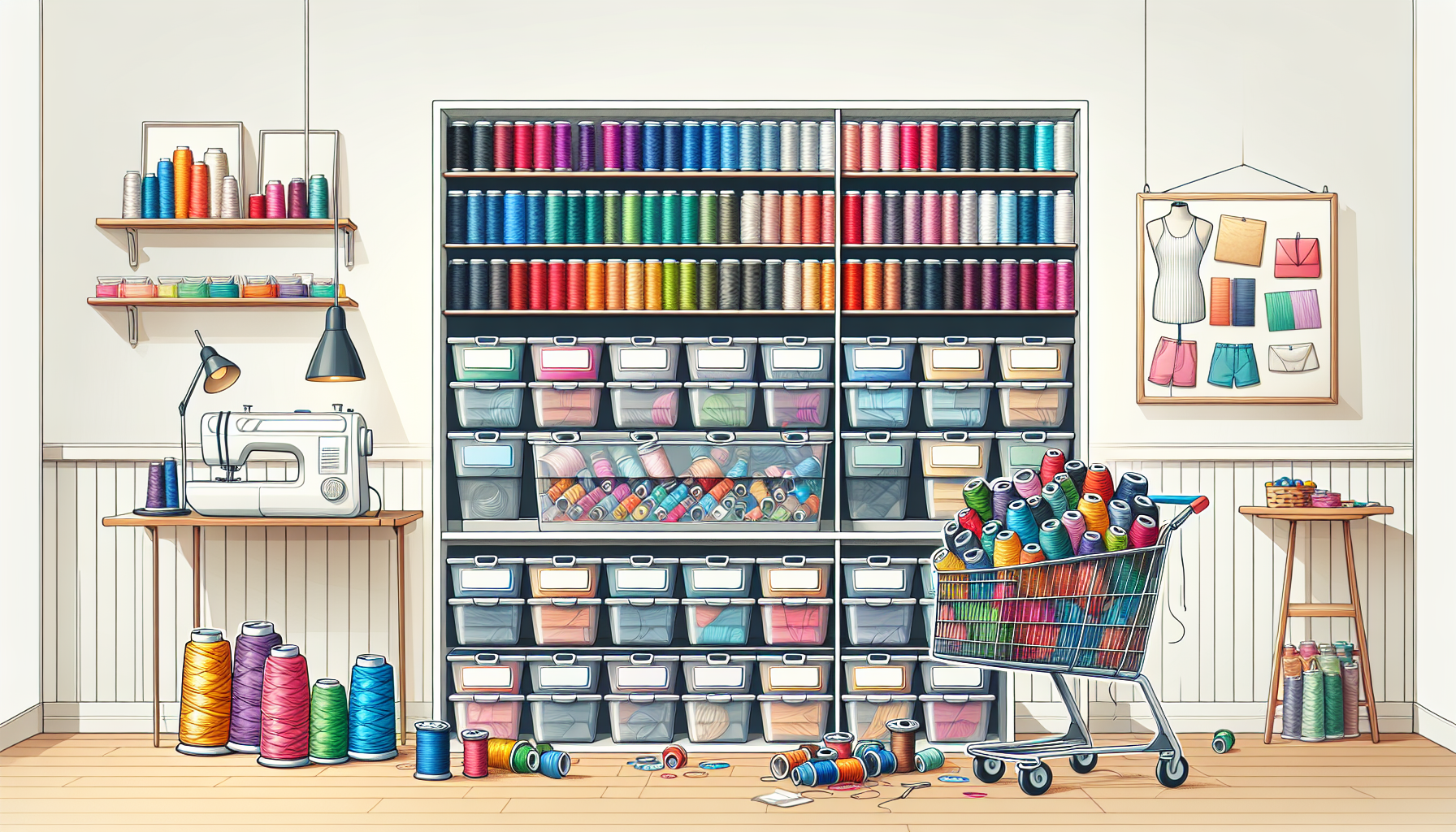
Buying thread in bulk can lead to significant cost savings, thanks to discount wholesale pricing. However, proper storage is essential to maintain the quality and organization of your thread collection. A dedicated storage box prevents tangling and damage, keeping your threads in pristine condition.
Organizing threads by color simplifies locating the desired thread and makes your sewing process more efficient. Labeling compartments aids in quick identification of thread types and colors. Storing spools upright minimizes tangling and allows for easy visibility of remaining thread.
Regularly reviewing and reorganizing your thread collection maintains order and usability. To prevent fading, store thread away from direct sunlight in a cool, dark location. These tips ensure your threads remain in top condition and ready for any project.
Maintaining Thread Quality
Maintaining sewing thread quality is crucial for project longevity and appearance. Quality sewing thread should be smooth, resistant to friction, and have adequate stretch to prevent breakage and puckering of seams. Using thread wax can help protect threads from fraying, tangling, and breaking.
Thread wax is particularly effective for high-friction sewing applications like leather or coarse materials, ensuring the thread maintains its integrity. Many sewers utilize thread wax for embroidery or quilting to keep the thread’s smooth appearance over time.
Incorporating these practices ensures your threads remain durable and your sewing projects achieve a professional finish.
Summary
In summary, choosing the right sewing thread is fundamental to the success of your sewing projects. Understanding the different types of threads, selecting the appropriate thread weight, and knowing the best options for domestic sewing machines are all crucial steps in achieving the desired results.
Maintaining thread quality through proper storage and using tools like thread wax will help ensure your threads remain in optimal condition. Armed with this knowledge, you can confidently tackle any sewing project and create beautiful, lasting pieces.
Frequently Asked Questions
What type of thread should I use for quilting?
For quilting projects, using cotton thread is highly recommended as it complements 100% cotton fabrics and provides a smooth finish.
Can I use polyester thread for all my sewing projects?
Yes, you can use polyester thread for most sewing projects as it is versatile and durable, ideal for apparel, drapery, and more. However, be mindful of specific fabric needs that may require specialized threads.
How do I prevent my thread from breaking during sewing?
To prevent your thread from breaking during sewing, use high-quality thread and maintain proper thread tension. Additionally, consider applying thread wax to reduce fraying and prolong the thread's lifespan.
What is the maximum thread weight I can use with my home sewing machine?
The maximum recommended thread weight for home sewing machines is Tex 70. Using heavier thread can lead to problems with tension and overall machine performance.
How should I store my sewing threads to maintain their quality?
To maintain the quality of your sewing threads, store them in a cool, dark place away from direct sunlight and organize them in a dedicated storage box to prevent tangling and damage.
